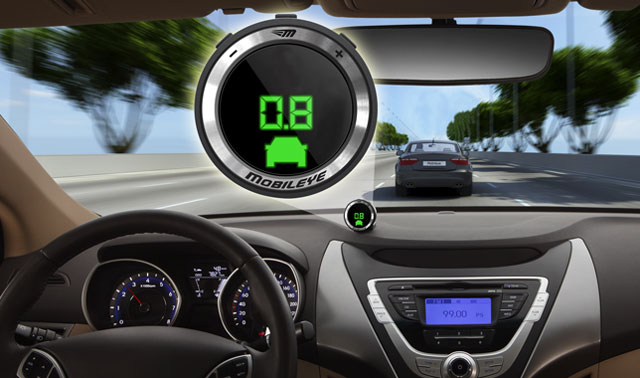
Intel plans to buy Israel’s Mobileye for about US$15bn, its second biggest acquisition and a bold attempt to dominate technology for self-driving cars.
The US chip maker will pay $63,54/share in cash for Jerusalem-based Mobileye, according to a statement on Monday from both companies. Mobileye shares closed at $47,27 on Friday in New York.
Intel is trying to accelerate a push into what many chip companies view as the next big opportunity: self-driving cars and the data they generate. With Mobileye, Intel gains the ability to offer car makers a larger package of all of the components they will need as vehicles become autonomous. Intel estimates the vehicle systems, data and services market to be as much as $70bn by 2030.
“Together, we can accelerate the future of autonomous driving with improved performance in a cloud-to-car solution at a lower cost for automakers,” Intel CEO Brian Krzanich said in the statement.
While Intel’s chips are dominant in PCs and data centres, the world’s largest semiconductor maker has struggled to spread the use of its products to other areas where semiconductors based on ARM Holdings designs have prevailed.
Under Krzanich, Intel has sought to break into everything from drones to cash registers. That’s generated a limited amount of new revenue that hasn’t yet fired up Intel’s overall sales growth, and the company still remains reliant on PCs and servers for its profit.
But self-driving vehicles have potential to disrupt the car industry, and car makers and technology companies are scrambling to stake out a leading market position.
Intel’s chips are already in 30 vehicle models currently on the road and are being used in hundreds of autonomous test vehicles, the company said in January. Intel and Mobileye had already teamed up with BMW and plan to introduce fully autonomous cars by 2021. The companies are dispatching a fleet of 40 self-driving 7-Series sedans this year to hone systems for complex urban traffic.
Watch Mobileye’s autonomous car technology in action:
Google has clocked 3,2m self-driving kilometres on public roads, Tesla has gathered data from 2,1bn kilometres of data from Autopilot-equipped vehicles, and Mercedes-Benz parent Daimler has partnered with Uber Technologies.
Google, which separated its self-driving car project into a new unit called Waymo, plans to start a ride-sharing service using semi-autonomous minivans made by Fiat Chrysler Automobiles as soon as the end of 2017. Volkswagen is rolling out Moia, a new division that will focus on ride-sharing and other mobility services. Mercedes already offers cars that can pilot themselves at highway speeds.
Digital services for automobiles could more than double by 2025 from $900m, according to Frost & Sullivan’s Sarwant Singh, a senior partner at the global market research company. In an interview earlier this year, Singh attributed much of Mobileye’s success to the fact that it was first in its field.
Intel’s offer represents an equity value of about $15,3bn and an enterprise value of $14,7bn, according to the statement. — (c) 2017 Bloomberg LP
- Reported with assistance from David Wainer and Jeremy Kahn

